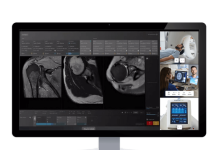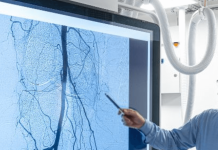Foldax this week announced it secured regulatory approval in India for its Tria mitral heart valve.
The approval from India’s Central Drugs Standard Control Organization allows Dolphin Life Science to produce the valve locally. It is the first commercial approval of a polymer heart valve anywhere in the world, according to the company.
Related: Avicenna.ai secures CE marks for two AI fracture detection tools
Foldax designed the valve to address the durability and thrombosis risks associated with traditional tissue and mechanical valves. It is made from the company’s proprietary LifePolymer material and robotically manufactured for consistency at scale. LifePolymer is engineered to resist calcium buildup and avoid the need for lifelong anticoagulation.
Tria has demonstrated favorable safety, stable hemodynamics and meaningful improvements in quality of life in clinical research, according to Foldax.
“My experience with the Tria Mitral Valve has shown me that there is now a compelling alternative for a diverse patient population, including those as young as 18 years old and women of childbearing age, many of whom suffer from mitral valve damage caused by rheumatic fever,” said Kaushal Pandey, principal investigator of the Tria Mitral Valve India clinical trial and Cardiac Surgeon at P.D. Hinduja Hospital in Mumbai.
The TRIA mitral valve remains investigational and is not yet approved for commercial sale in the U.S. Foldax said it plans to expand the LifePolymer platform into additional valve positions and transcatheter applications.
“Gaining approval with our partner Dolphin Life Sciences for the world’s first polymer heart valve marks a defining moment in the evolution of heart valve therapy and disrupts long-standing paradigms in the heart valve industry,” Foldax CEO Ken Charhut said in a news release. “We intend to extend our unique platform utilizing LifePolymer material and proprietary robotic manufacturing into additional applications in transcatheter devices and other valve positions. We look forward to making a transformative impact in India and other geographies where we can fill critical unmet clinical needs.”




